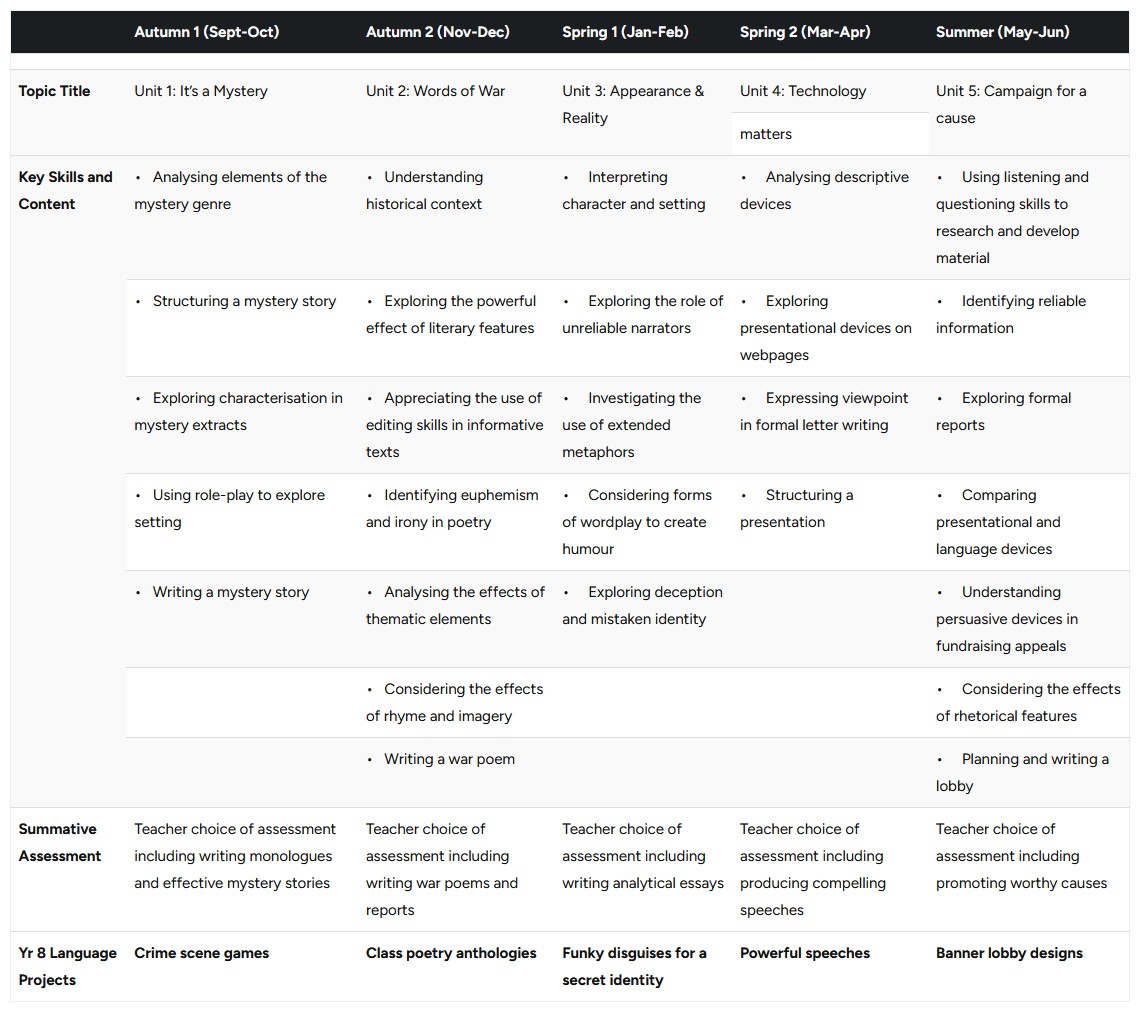| | | | | |
| Topic Title | Unit 1: It’s a Mystery | Unit 2: Words of War | Unit 3: Appearance & Reality | Unit 4: Technology | Unit 5: Campaign for a cause |
| matters |
| Key Skills and Content | • Analysing elements of the mystery genre | • Understanding historical context | • Interpreting character and setting | • Analysing descriptive devices | • Using listening and questioning skills to research and develop material |
| • Structuring a mystery story | • Exploring the powerful effect of literary features | • Exploring the role of unreliable narrators | • Exploring presentational devices on webpages | • Identifying reliable information |
| • Exploring characterisation in mystery extracts | • Appreciating the use of editing skills in informative texts | • Investigating the use of extended metaphors | • Expressing viewpoint in formal letter writing | • Exploring formal reports |
| • Using role-play to explore setting | • Identifying euphemism and irony in poetry | • Considering forms of wordplay to create humour | • Structuring a presentation | • Comparing presentational and language devices |
| • Writing a mystery story | • Analysing the effects of thematic elements | • Exploring deception and mistaken identity | | • Understanding persuasive devices in fundraising appeals |
| • Considering the effects of rhyme and imagery | | | • Considering the effects of rhetorical features |
| • Writing a war poem | | | • Planning and writing a lobby |
| Summative Assessment | Teacher choice of assessment including writing monologues and effective mystery stories | Teacher choice of assessment including writing war poems and reports | Teacher choice of assessment including writing analytical essays | Teacher choice of assessment including producing compelling speeches | Teacher choice of assessment including promoting worthy causes |
| Yr 8 Language Projects | Crime scene games | Class poetry anthologies | Funky disguises for a secret identity | Powerful speeches | Banner lobby designs |

